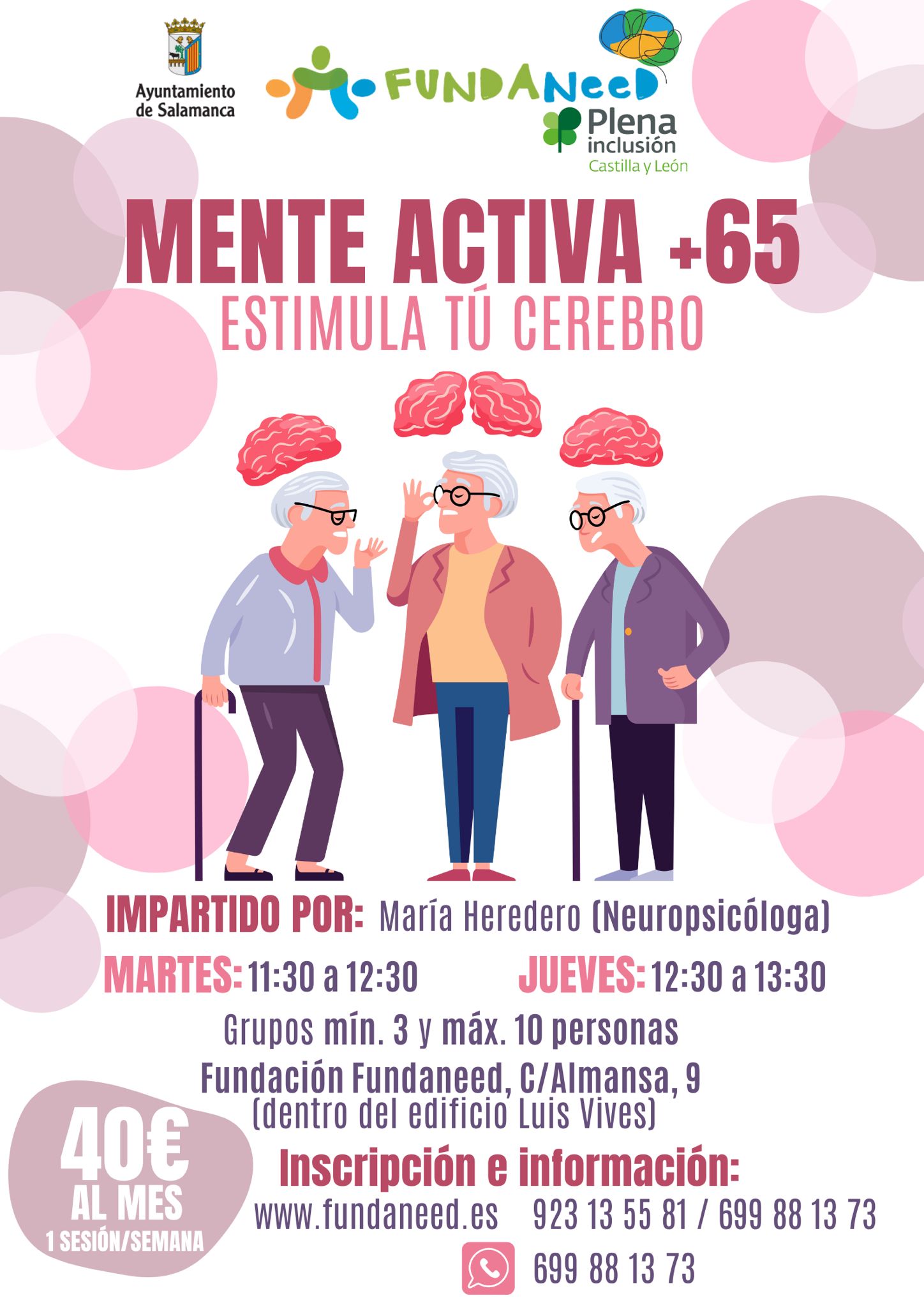Why this workshop?
It is a structured activity designed to improve or maintain cognitive abilities, such as memory, attention, reasoning and language, through exercises and techniques that work on these brain functions. It is oriented both to older people who wish to prevent or slow down cognitive deterioration, as well as to those who, due to some condition, illness or injury, seek to rehabilitate their cognitive abilities.
What will we do in this workshop?
The workshop is conducted in group sessions, under the guidance of a specialized professional, such as a neuropsychologist or occupational therapist. Each session includes a series of exercises that stimulate different cognitive areas, adapted to the level and needs of the participants.
Objectives to be achieved
Maintain or improve cognitive functions: To help participants maintain or enhance skills such as memory, attention, orientation, calculation and language.
Prevent cognitive deterioration: Particularly in the elderly, these workshops seek to prevent or delay the onset of problems related to neurodegenerative diseases, such as Alzheimer’s.
Cognitive rehabilitation: In the case of people with brain damage (e.g., after a stroke), workshops can help recover affected cognitive skills.
What exercises or activities will we do?
Memory exercises
Recalling lists of words or pictures: Several words or pictures are presented, and then participants are asked to recall them after a few minutes.
Sequential memory: Participants hear or see a series of numbers, letters or words, and must recall them in the correct order.
Stories or events: Participants are told a short story, and then asked questions about the details of the story to assess information retention.
Attention and concentration exercises
Spot the Difference: They are presented with two nearly identical pictures and must identify the differences.
Word Search: Participants search for hidden words in a grid of letters, which stimulates attention and concentration.
Counting numbers or letters: Exercise in which they must find a specific number in a long sequence of jumbled numbers.
Logical reasoning tasks
Math problem solving: Simple problems involving basic computation or number sequences.
Puzzles: Assembling puzzle pieces or solving logic puzzles.
Logic series: Completing series of numbers or figures following a logical pattern.
Language stimulation activities
Crossword puzzles: Solving crossword puzzles using definitions or clues, which strengthens vocabulary and idea association.
Word games: How to form words from certain letters or complete sentences with the correct words.
Directed conversations: Specific topics are proposed for participants to talk about, stimulating language and verbal fluency.
Visual and spatial perception exercises.
Mazes: Following the correct path through a maze with a pencil, which improves visual perception and planning.
Geometric shapes: Identification of geometric shapes and how they relate to each other.
Visual puzzles: Activities that require identifying patterns or filling in missing shapes.
Spatial and temporal orientation exercises
Calendars and clocks: Identifying important dates or reading the time on analog clocks, which helps to work on time orientation.
Location exercises: Remembering and locating on a map their locality, country or elements within a familiar environment.
Planning and organization tasks
Planning an activity: Organizing an event or an everyday activity, which requires dividing tasks into logical sequences.
To-do lists: Ask participants to prioritize a list of tasks according to importance or urgency.
Interactive or dynamic games
Board games: Games such as dominoes, chess or bingo help to work on different cognitive skills such as attention, strategy and memory.
Group dynamics: Collaborative exercises where participants must work together to solve a problem or complete a task.
Personalized attention with small groups of 3 to 10 people. Don’t miss your place!


